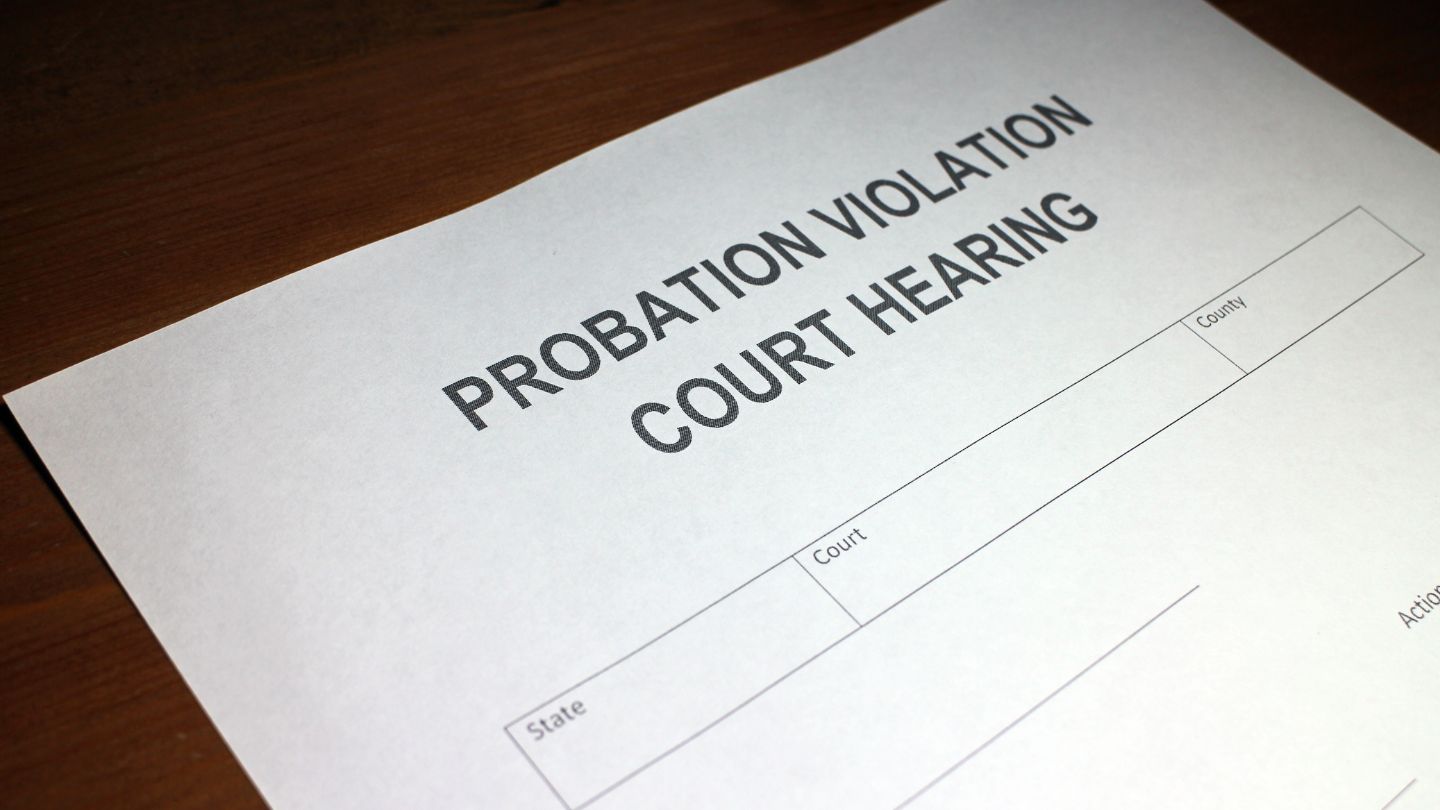Probation Violation Lawyer in Austin, TX

Probation supervision can greatly restrict and hinder your life and activities. You may feel like a probation officer in Austin, Texas, has control over your life and can jail you for any perceived probation violation.
But you still have rights if you are on probation after being convicted of a criminal offense. You cannot be convicted of violating probation unless your probation officer and a prosecutor can prove the alleged violation to a judge. Even then, the judge must be persuaded that the violation is serious enough to warrant action. With the help of a reputable Austin probation violation lawyer, it is possible to defend your rights and win.
At Minton, Bassett, Flores & Carsey, P.C., we firmly believe that anyone who has been granted probation deserves an aggressive defense when accused of any type of probation violation. Our experienced Austin criminal defense lawyers are here to defend your rights and help you navigate the criminal justice system. We will do everything we can to secure the best possible outcome for you. We have successfully represented clients across Central Texas since 1963. We are ready to put our skills and resources to work to protect you.
Contact Minton, Bassett, Flores & Carsey, P.C. today for a confidential consultation with one of our dedicated probation violation attorneys.
Common Probation Violations
Probation is a criminal sentence that releases an individual convicted of criminal charges into the community instead of confining him or her to jail or prison. It is sometimes called community supervision. Probation comes with various terms, conditions, and restrictions that the individual must fulfill. Violations of probation can be punished by the imposition of additional restrictions or by imposing the jail or prison sentence that could have been handed down when the person was convicted.
In Texas, there are two types of probation:
- Straight Probation / Community Supervision. This means a jail/prison sentence pronounced by the court upon your conviction has been suspended, and you are free as long as you meet the conditions of probation for the established length of time.
- Deferred Adjudication. If you plead guilty or no contest, a judge may decide not to enter a finding of guilt and instead place you on Deferred Adjudication probation. If you successfully complete the terms of probation, your case is dismissed, and no conviction for the crime appears on your criminal record.
There are many ways to violate probation depending on the contents of the individual’s probation order. Probation violation issues that we often assist clients with include the following:
- Missing scheduled appointments with the probation officer
- Failing to appear in court
- Failing to pay fines or restitution
- Failing to attend and complete community service or rehab
- Failing a drug and/or alcohol test
- Failing to maintain employment
- Visiting prohibited people or places connected to previous crimes
- Traveling without notifying the probation officer
- Being arrested for another crime
What Happens After a Probation Violation?
An individual on probation will be assigned a probation officer to supervise them during the term of probation. The probation officer has the authority to determine whether to pursue punishment for alleged probation violations short of the probationer committing a crime.
A probation officer’s decision will likely depend on the relationship the two of you have established, as well as such factors as:
- The seriousness of the alleged violation,
- Legitimate mitigating factors, such as being laid off from a job,
- Prior adherence to terms of probation, such as being on time for meetings and completing community service without lapses.
Your probation officer may give you a warning after a first probation violation or require you to appear in court for a probation violation hearing.
If your probation officer directs you to a hearing, the judge may add more restrictions to your probation order, or the judge may impose jail time.
If you are directed to appear at a court hearing for an alleged probation violation, you need to speak to a probation violation attorney. Your freedom could be on the line.
What Happens at a Probation Violation Hearing?
You may face a hearing for a probation violation depending on the circumstances of your alleged violation and your relationship with your probation officer. But before a judge can hand down punishment for a probation violation, a prosecutor from the District Attorney’s office must prove you violated probation.
The prosecutor must show by a preponderance of the evidence that you did, in fact, violate the terms of your probation as reported by your probation officer. This is much lower than the “beyond a reasonable doubt” standard of proof that is required in a criminal trial. It means that the evidence must show that it is more likely that you did violate your probation than it is that you didn’t.
You have the right in a probation violation hearing to present testimony and evidence that refutes or counters the prosecution’s allegations against you. You may also present evidence of mitigating factors, which may persuade the judge that your violation could not be avoided or was so minor that further punishment is unnecessary.
After both sides have presented their case and have had the opportunity to cross-examine the other side’s witnesses, the judge will make a decision. If the judge decides no violation occurred, the defendant goes free and resumes life under the terms of their probation. If the judge decides that a violation occurred, the judge may impose additional punishment on the defendant.
What Are the Possible Punishments for a Probation Violation?
In a probation violation hearing, the possible consequences are the same for a first, second, or subsequent violation.
A probation violation hearing may result in:
- Extension of the probationary period. The judge may add to your probation term, giving you an additional six months of probation, for example. Or the judge may reset your probation, starting the calendar on your original probation sentence over at day one.
- Additional conditions of probation. A judge who decides you are not meeting the terms and conditions of your probation may make the probation requirements harsher or more restrictive. If you have failed a drug test, you may be sent to rehab. If you are found associating with known criminals or other undesirables, additional people and places may be placed off limits, or you may face a curfew.
- Imposition of a criminal sentence. Probation is handed down in lieu of a harsher sentence for conviction of a criminal offense. Probation gives convicted individuals an opportunity to prove they recognize their mistakes and want to change the course of their life. If a judge is persuaded that probation is not working for you, he or she can revoke your probation and send you to prison. In Texas, jail time for revocation of straight probation/community supervision is capped at two years. If you are on deferred adjudication probation, the judge can sentence you anywhere within the range of punishment available for your original criminal offense.
Talk to a Probation Violation Lawyer in Austin, TX, Today
The sooner you engage the services of an experienced probation violation attorney at Minton, Bassett, Flores & Carsey, P.C., the sooner our legal team can begin gathering evidence in your favor and providing you with the legal protections that are your constitutional right. Our Austin probation violation hearing attorneys understand the state’s probation programs and laws, including deferred adjudication. Our defense attorneys genuinely care about you and will aggressively advocate for your interests in a probation violation hearing.
We have stood up to prosecutors and protected the rights of clients from across Central Texas for more than 50 years. Contact us today to discuss a defense strategy and how we can rebut the allegations against you or negotiate the best possible resolution to your case.




